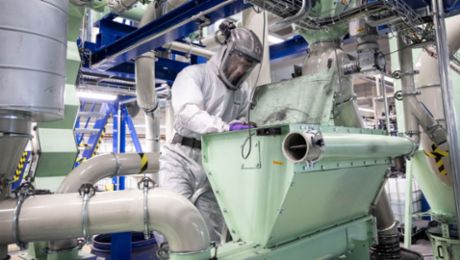Renewable electrical energy can be stored in batteries but can also be converted into synthetic fuels, known as e-fuels.
At the end of 2022, the world’s first integrated pilot plant for the production of synthetic, potentially near-carbon-neutral fuels got up and running. Located in Chile, the Haru Oni project is the product of an initiative by Porsche and the Chilean company HIF Global (Highly Innovative Fuels). It has been realised with international partners such as Siemens Energy and is operated by HIF Global. The Magallanes province in southern Chile provides the best conditions for the manufacture of synthetic petrol. A wind turbine there produces three to four times as much electricity each year as the same turbine would generate in Germany, resulting in significantly lower energy costs. Moreover, there are few takers in the wider surroundings for the great potential of this wind energy, which makes the production of liquid energy sources here attractive. The next steps for scaling up production at the Magallanes site are already being planned. In contrast to the operation so far at the pilot plant, production will no longer be restricted to petrol, for which Porsche is the sole customer thus far. Based on renewable methanol, the same intermediate product as that used in the pilot plant, fuels can also be generated for use in air travel, shipping or heavy goods transport, for example. Porsche has already invested more than 100 million USD in the development and production of e-fuels.

